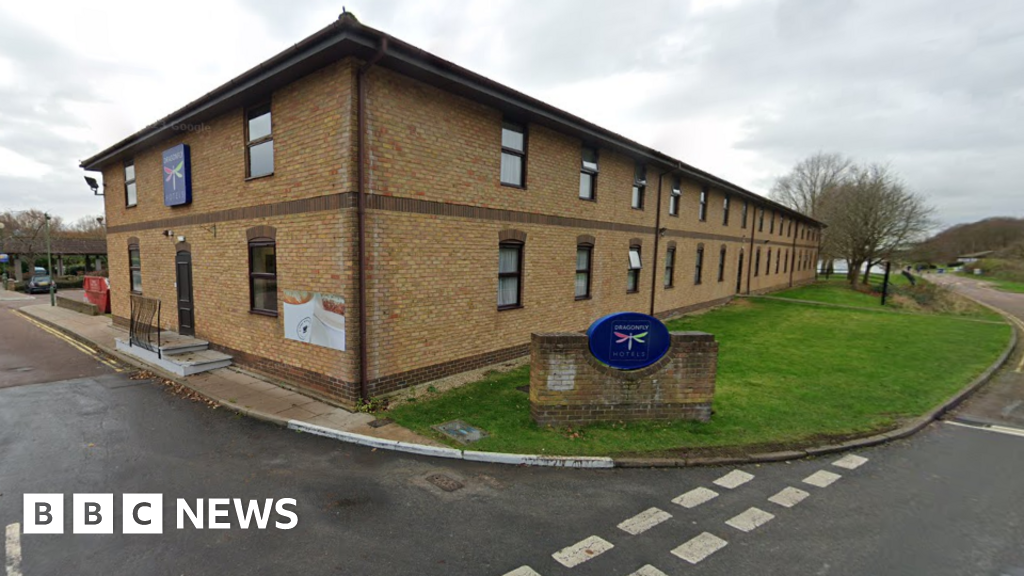ARTICLE AD BOX
Image source, Getty Images
Image caption,Face masks will no longer be legally required in Welsh shops
Wales is to press ahead with scrapping self-isolation rules and the legal requirement to wear a mask in shops, buses and trains on Monday.
In response to rising cases, driven by a sub-type of Omicron, the Welsh government said it would keep some, but not all, of its remaining Covid rules.
Companies will still be expected to asses the risk of Covid in their workplaces and take precautions.
But face coverings will only be legally required in health and social care.
All of Wales' coronavirus regulations were due to expire on 28 March.
The Welsh government had planned to let them lapse but earlier this week ministers said they were thinking again.
Virologist Prof Richard Stanton said he would be surprised to see restrictions disappearing, saying "England set the tone" by getting rid of them and the Welsh government has a "fine line to walk".
He cautioned: "We are seeing a rise in cases as restrictions are starting to lift and this increase is spilling over to hospital increases at a time when the NHS is already stretched."
Prof Stanton, of Cardiff University, said the concern was that people would "think it's over" and with the likelihood of new variants emerging, these could spread more rapidly with no restrictions.
What remains of the law will be extended for at least a further three weeks, with another review due on 14 April.
PCR tests for the general public will no longer be available from Monday, although the Welsh government plans to keep lateral flow tests free for people with symptoms until June.
Image source, Getty Images
Image caption,PCR testing will end in Wales next week
First Minister Mark Drakeford said "We have seen an unwelcome rise in coronavirus cases across Wales, mirroring the position in most of the UK.
"We have carefully considered the very latest scientific and medical evidence and we need to keep some legal protections in place for a little while longer, to help keep Wales safe."
Wales' mask law will be amended from Monday so face coverings will no longer be legally required to be worn in shops and on public transport.
The Welsh government still recommends people use them and they will be legally mandated in health and social care.
Guidance will be issued recommending people self-isolate if they get Covid, but from Monday they will not be required by law to do so.
Image source, Getty Images
Image caption,Face masks have been a common sight in shops for the past two years
Payments of £500 for self-isolation will remain available until June.
However, companies will still need to carry out risk assessments on their premises and put in place "reasonable measures" to guard against coronavirus.
The move will leave Scotland the only UK nation with masks legally required in shops after ministers decided to keep the regulations into April.
Welsh Conservatives welcomed the end to self-isolation and masks in shops and on public transport, but accused Labour of being "anti-business".
Tory health spokesman Russell George said: "At a time when the government should be doing all it can to boost jobs and productivity, is it right that businesses should continue to have fill out paperwork with little value? We need to trust businesses to do what is right to keep their staff and customers safe."
Cases rising
His counterpart in Plaid Cymru, Rhun ap Iorwerth, said: "With a jump in cases, many will be concerned at the timing of the lifting of these measures. There are issues around whether the end of self-isolation will signal the end of free lateral flow tests, so there remain areas on which Welsh government have to provide further clarity."
The weekly swab survey by the Office for National Statistics has shown a rise in infections in the past couple of weeks.
It suggested that 125,400 people in Wales had Covid in the week ending 12 March - up on the previous week's estimate of 97,900.
PCR Covid results have diminished in importance in recent months but have also shown an increase.
On Thursday, Wales' case rate stood at 424.2 per 100,000 people over seven days, up from about 156 at the end of February.
Earlier this week, Health Minister Eluned Morgan said most people would experience mild symptoms from BA.2, the Omicron sub-type, but it is still expected to drive an increase in cases and hospital admissions.

 2 years ago
32
2 years ago
32








 English (US)
English (US)